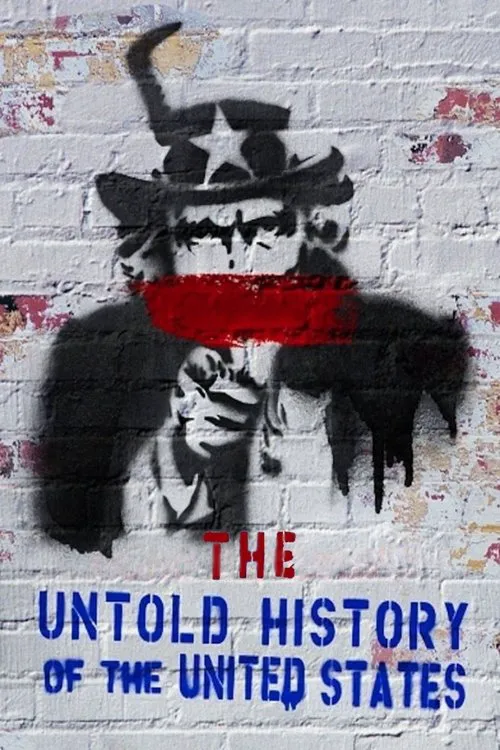The Untold History Of The United States

Plot
The Untold History of the United States is a 2012 documentary series directed by Oliver Stone, a renowned filmmaker known for his provocative and often polarizing takes on historical events. This documentary series seeks to challenge the conventional narratives and myths surrounding the history of the United States, delving into the lesser-known aspects and hidden dynamics that have shaped the nation's trajectory since the Second World War. Stone begins by examining the end of World War II, when Harry Truman, in a decision that would have far-reaching consequences, chose to drop the atomic bomb on Hiroshima and Nagasaki. This act, rather than saving lives, hastened the Japanese surrender, but also established the United States as a global nuclear power, setting it on a path towards becoming the world's dominant superpower. Stone suggests that Truman's decision was driven by a combination of military strategy, economic interests, and a desire to demonstrate the devastating power of the atomic bomb, which would serve as a deterrent to future rivals. The series then moves on to the early Cold War era, during which the United States, under the leadership of President Truman and later Dwight Eisenhower, became increasingly entangled in international power struggles. The documentary highlights the CIA's covert operations, including the overthrow of democratically elected governments in Iran and Guatemala, as well as the failed Bay of Pigs invasion in Cuba, which sought to topple Fidel Castro's socialist government. These events, Stone argues, illustrate the growing paranoia and militarism that defined the American approach to Cold War politics. One of the most crucial events in the series is the Kennedys' presidency, which marked a turning point in American history. Stone's portrayal of John F. Kennedy emphasizes the young president's attempts to challenge the entrenched military-industrial complex and his efforts to establish a more peaceful and cooperative relationship with the Soviet Union. Stone also highlights the tragic events that led to Kennedy's assassination, including the CIA's involvement in a plot to overthrow Castro, which may have implicated organized crime figures and elements of the American military. The series next explores the tumultuous years of the 1960s, marked by social upheaval, civil rights activism, and the Vietnam War. Stone examines the Johnson administration's escalation of the war and the brutal tactics employed by the US military, which led to widespread civilian casualties and anti-war protests. He also profiles prominent anti-war activists, including Daniel Ellsberg, who leaked the Pentagon Papers to expose the administration's deceptions about the war. Lyndon B. Johnson's presidency is portrayed as a pivotal moment in the history of American foreign policy, as he became increasingly entrenched in Vietnam and authorized a series of covert operations, including the Phoenix Program, which involved assassinating suspected Viet Cong sympathizers. Stone suggests that Johnson's war policies were driven by a toxic blend of military ambitions, Cold War paranoia, and a desire to assert American dominance in Southeast Asia. Ronald Reagan's presidency, which spanned the 1980s, is depicted as a high-water mark of neoconservative ideology, characterized by a relentless drive to roll back socialism and promote US interests abroad. The documentary explores Reagan's confrontational approach to the Soviet Union, including the deployment of missiles in Europe and the CIA's support for anti-Soviet rebels in Afghanistan. Stone also examines Reagan's role in the Iran-Contra affair, which involved the secret sale of arms to Iran and the diversion of funds to fund anti-Sandinista rebels in Nicaragua. The series concludes with the presidency of George W. Bush, who oversaw the 9/11 attacks, the invasion of Afghanistan, and the fateful decision to go to war in Iraq. Stone argues that these actions were driven by a catastrophic convergence of neoconservative ideology, corporate interests, and a zealous determination to assert American dominance in the Middle East. The documentary highlights the devastating consequences of these decisions, including the widespread destruction of Iraq's infrastructure, the erosion of civil liberties, and the emergence of a new era of global terrorism. Throughout The Untold History of the United States, Oliver Stone presents a scathing critique of US foreign policy, revealing a pattern of militarism, expansionism, and human rights abuses that has characterized American history since World War II. While Stone's approach can be provocative and sometimes overly broad, his goal is to challenge the conventional wisdom and force viewers to reconsider the complex and often troubled history of the United States.
Reviews
Recommendations



